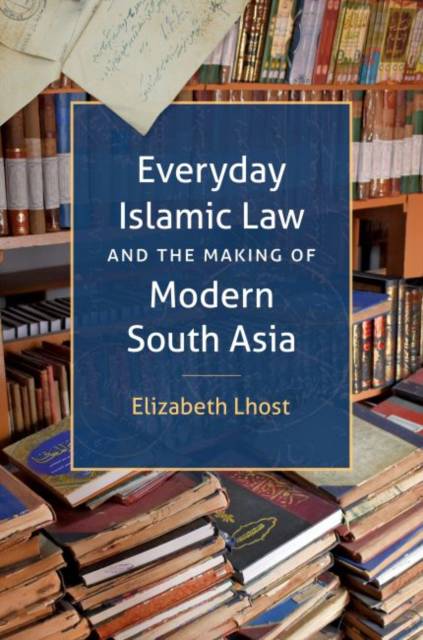
- Afhalen na 1 uur in een winkel met voorraad
- In januari gratis thuislevering in België
- Ruim aanbod met 7 miljoen producten
- Afhalen na 1 uur in een winkel met voorraad
- In januari gratis thuislevering in België
- Ruim aanbod met 7 miljoen producten
Everyday Islamic Law and the Making of Modern South Asia
Elizabeth LhostOmschrijving
Beginning in the late eighteenth century, British rule transformed the relationship between law, society, and the state in South Asia. But qazis and muftis, alongside ordinary people without formal training in law, fought back as the colonial system in India sidelined Islamic legal experts. They petitioned the East India Company for employment, lobbied imperial legislators for recognition, and built robust institutions to serve their communities. By bringing legal debates into the public sphere, they resisted the colonial state's authority over personal law and rejected legal codification by embracing flexibility and possibility. With postcards, letters, and telegrams, they made everyday Islamic law vibrant and resilient and challenged the hegemony of the Anglo-Indian legal system.
Following these developments from the beginning of the Raj through independence, Elizabeth Lhost rejects narratives of stagnation and decline to show how an unexpected coterie of scholars, practitioners, and ordinary individuals negotiated the contests and challenges of colonial legal change. The rich archive of unpublished fatwa files, qazi notebooks, and legal documents they left behind chronicles their efforts to make Islamic law relevant for everyday life, even beyond colonial courtrooms and the confines of family law. Lhost shows how ordinary Muslims shaped colonial legal life and how their diversity and difference have contributed to contemporary debates about religion, law, pluralism, and democracy in South Asia and beyond.
Specificaties
Betrokkenen
- Auteur(s):
- Uitgeverij:
Inhoud
- Aantal bladzijden:
- 376
- Taal:
- Engels
- Reeks:
Eigenschappen
- Productcode (EAN):
- 9781469668123
- Verschijningsdatum:
- 12/07/2022
- Uitvoering:
- Paperback
- Formaat:
- Trade paperback (VS)
- Afmetingen:
- 156 mm x 234 mm
- Gewicht:
- 580 g

Alleen bij Standaard Boekhandel
Beoordelingen
We publiceren alleen reviews die voldoen aan de voorwaarden voor reviews. Bekijk onze voorwaarden voor reviews.









